Step aside Whistler – it’s time to ride the Cariboo.
For the past several years, four communities in B.C.’s historic Cariboo have joined forces to capitalize on one of the region’s best-kept secrets – more than 600 kilometres of single track mountain bike trails that range from cross-country to epic alpine.
According to Justin Calof, executive director of the Cariboo Mountain Bike Consortium, the initiative has two primary goals.
“One, to grow the economic impact of mountain biking in the Cariboo, and the second is to promote a vibrant mountain bike culture across the region,” explained Calof. “The first goal is the meat and potatoes of what we try to do, it evolved out of a group of businesses, mountain bike clubs and individuals throughout the region. It’s also a recognition that the pine beetle is forcing the economy through some very serious transition, and mountain biking has a role to play in the diversification of the economy. “The group’s web portal, www.ridethecariboo.ca, features a host of trail networks in Williams Lake, Wells, 100 Mile House and Quesnel. Users can click through each community and visit discussion forums, explore trail networks, view photos and video and find lists of local amenities and even travel itineraries.
Mountain biking as an adventure sport and tourism activity has been “growing by leaps and bounds” in the last five years, said Calof, but most of the traditional market has been concentrated on the South Coast, the Sea-to-Sky corridor and the Kootenays.
That’s forced the Cariboo to position its offering differently in order to attract riders from the southern reaches of the province and elsewhere.
“People have to fly or drive here and a six hour drive can be a bit of a deterrent,” he said. “What most market research is showing now is that mountain biking is a travel motivator on its own, and people are travelling great distances, even as far as the Yukon, to go on mountain biking expeditions.” In addition to hundreds of kilometres of single track, Calof said one of the unique aspects about the Cariboo is that visitors can fly into the region and visit four very distinct communities within a short distance of one another.
[quote by=”Justin Calof” position=”Executive Director” company=”Cariboo Mountain Bike Consortium”]Mountain biking is a travel motivator on its own, and people are travelling great distances, even as far as the Yukon, to go on mountain biking expeditions[/quote]
The economic impact of mountain biking in the Cariboo was estimated to be approximately $1.9 million in 2009, according to Calof.
Since then, the market has grown some 11.5%. Northern Development Initiative Trust helped fund the Cariboo Mountain Bike Consortium marketing initiative, providing $19,750. The Cariboo-Chilcotin Beetle Action Coalition and Williams Lake Cycling Club also provided funding to the marketing initiative. Additionally, Northern Development also provided funding to the Williams Lake Cycling Club and City of Williams Lake for the development of a signature single track trail and a second marketing campaign on Pinkbike – mountain biking’s premier online magazine. The funding for both of those initiatives totalled $35,245.
Tourism BC, the Province of British Columbia, the City of Williams Lake and the Williams Lake Cycling Club also contributed funding to those initiatives. Calof said marketing efforts will continue this year, and a lot of time and energy will also be poured into building new trails and improving others to continually improve the Cariboo’s unique mountain biking experience.



